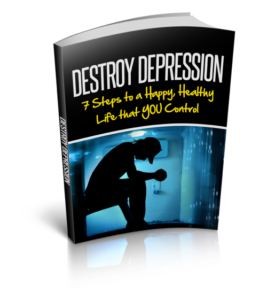The idea that circumstances don’t matter is often attributed to a metaphysical view of the world. It has been mentioned as part of the Law of Attraction and is often attributed to Bashar, an entity supposedly channelled by Darryl Anka. I am not extolling the virtues of either but merely acknowledging the source of the statement. However, I will also add that if you do find something helpful in your journey towards good mental health, then why not use it.
The idea that circumstances don’t matter, seems to suggest that anything that happens in our lives should have no effect on our mental and emotional health. Nothing could be further from the truth. There are circumstances in life such as, severe illness, loss of a loved one or any one of a multitude of adverse life events that can have a profound effect on us. But what about the everyday events ? Those small, seemingly insignificant circumstances that can often send us into emotional turmoil. The whole concept of circumstances don’t matter, is that nothing has inherent meaning. In fact, nothing has meaning until we attach a meaning to it.
Let me give an example. Suppose there is a person who was raised to give and display respect for everyone. Now during the course of the day this individual is in the habit of opening doors for others and allowing them to enter first. Some people may think, what a lovely gesture, acknowledge it as an act of kindness and happily go about their day. There are others who may, for various reasons, see this act as demeaning or belittling. They may attach a meaning to that action along the lines of, I am quite capable of opening my own doors thank you very much and attach a negative meaning to the situation. So, the event or circumstance is neutral until we attach a meaning to it, and the meaning we attach to it is going to influence how we feel.
So why is this important? While one small event in a day may not have a significant effect on our mental well-being, imagine going about the whole day interpreting every small event in a negative fashion. It would be absolutely exhausting. Yet there are people who do that every day. Every single circumstance in their day is interpreted as a personal attack and they feel and act accordingly. I am sure we all know someone like that or maybe we have been that person at some stage in our lives. Even if someone is unkind to us we can still attach a meaning to it that doesn’t greatly affect our peace of mind. One phrase I find helpful is “this has nothing to do with me”. That is for the most part if someone is behaving negatively towards me for no apparent reason then it is most likely their issue. This can often shift potential feelings of anger into feelings of compassion and understanding.
So, pay attention to the meanings you are attaching to those day to day experiences. Ask yourself, is there another way of looking at this. Is there a meaning behind this person’s behaviour that has nothing to do with me? Is the loss of a job a life shattering event or an opportunity to do something else, something I have wanted to do for years but lacked the courage to start? If the meaning I attach to this circumstance is influencing the way I feel, then what meaning could I give it, so I can feel better. Honestly, what is more important than how you feel.
Finally, attaching a different meaning to circumstances is not about denial but more about taking responsibility for how we feel and act. If you are struggling to find a positive meaning to a circumstance, maybe you can find a neutral one. A neutral or non-resistant state of mind can also generate peace. A peaceful mind is not only desirable but gives a better opportunity to make decisions that will help rather than hinder your current circumstances.
Wishing you all the best in your journey.
Phil Miranda



